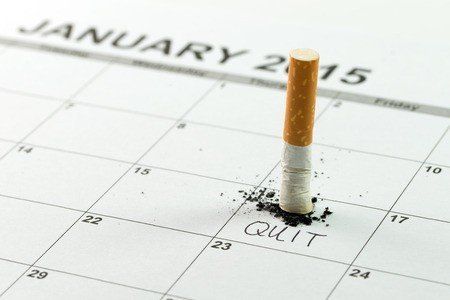Quitting Smoking Stops Bad Side Effects
According to the Center for Disease Control and Prevention
(CDC), roughly 42.1 million people—or, more specifically, 18.1 percent of all
U.S. adults ages 18 or older—smoke cigarettes. Everyone is aware of the fact
that smoking causes various kinds of cancer, aneurysms, heart disease,
bronchitis, stroke, and emphysema.
Smoking can also further agitate ongoing health issues like asthma and pneumonia, cause wounds to heal slowly, and possibly disrupt the body’s immune system. Additionally, numerous side effects from smoking can also affect the health of one’s mouth.
Being able to quit smoking, while admittedly difficult and burdened with side effects of its own, can significantly help keep a person’s health from declining further. This is why regular smokers should consider using the following steps to extinguish their habit permanently.
How Smoking Affects Oral Health
Some side effects of smoking on oral health include a stained tongue and teeth, bad breath, and a diminished sense of smell and taste, per the American Dental Association (ADA). However, due to the immune system being compromised, smokers usually have weaker defenses for infections like periodontal (gum) disease.
Smokers can also experience longer healing times following surgical procedures like tooth extractions. Another big consideration would be oral cancer, which can spread into the throat, mouth, tongue, and lips as tobacco is consumed over a long period of time. The tonsils and salivary glands are common oral cancer sites.
In terms of common irritations, smokers typically have more problems with their oral health than nonsmokers, including ulcers and mouth sores. Tooth loss and cavities are more likely, as tobacco prevents the mouth from fighting off the tartar and plaque that can accumulate on the teeth.
Prevention
While it might be tempting to just quit smoking cigarettes or other tobacco products cold turkey, this can be challenging on its own. Because of how addictive tobacco products are, there are other methods that can help people stop tobacco use over time and permanently. In addition to nicotine patches and chewing gum, individuals can also try cutting down on how much sugar they consume per day, as sugar merely feeds the harmful bacteria that cigarettes allowed to build up. Speak with your physician and dentist about treatment plans to help you kick tobacco and keep smoking side effects from damaging your oral health further.
Maintenance
Once individuals have made the first steps toward quitting, it’s crucial they start improving their oral health by brushing their teeth twice per day, flossing once daily, and using mouthwash. Along with a stronger oral healthcare routine, former smokers should also get professional cleanings every six months, thereby allowing for the removal of tartar and plaque through a full polishing. Of course, cleanings and stain removal are only temporary fixes, so, by quitting tobacco, you're providing your oral and overall health with a fresh start.
Smoking can hurt more than your lungs, as it can also impact your oral health. If you are a smoker and in need of a checkup, consider signing up for our individual discount dental plan that can save you as much as 20 percent off your bill. To learn more, click here.
Copyright: kenishirotie
/ 123RF Stock Photo











